Ha beszélsz magyarul, a jó blogra jöttél, de a rossz cikkhez! Kattints ide, hogy a poszt magyar eredetijét lásd.
Some unhinged rambling of an avid Slav watcher follows. This is how long I was able to stare at Ukraine in quiet acquiescence and that I will do no longer. This cute little warship story last week served as the perfect excuse for me to really sort through this mess. I mean, really. Ukraine is an extremely shoe horned country, and it might be the only place in existence that has managed to keep a several thousand strong community of professional analysts occupied for several decades without representing considerable economic (or cultural, I daresay) weight. Ukraine is to a foreign policy analyst what the sparkling blonde Junior chick with a notoriously troubled backstory is to a well-behaved, yet cheeky high schooler: her charm is unwavering, so he’s willing to deliver some juicy analysis on her anytime, yet when it comes to living with her, he just doesn’t seem to be that agreeable anymore. Ukraine is as exciting as it is unfit to support dignified human existence – so please let me join the long line of analysts on it.
Before we’d truly launch the storyline, let’s ponder over the name of this underprivileged country for a fleeting minute. Ukraine. There are two possible explanations as to why the country was baptized this way, but the roots of the name are definitely Russian – it’s either окраина/okrayna, Russian for “border region”, or у краина/u krayna, which means “in the region”. The fact that the name is suspiciously devoid of any national character catches the eye instantly. The great thing about a border region happens to be that everything within its confines is still mine, my neighbor’s territory starts only after that – thus, it’s safe to say it was never the intention of Mother Russia for this region to ever function as an independent country. Excusing myself for the historically tasteless parallel in advance I thus don’t have any other option but to risk the statement that the Russians probably consider the Ukrainians of the Eastern European Plains as much of an independent nation as New Yorkers do when it comes to Texans. (I’ll leave a side note too: the Russians are probably as fired up about the notion of an independent Ukrainian state as New Yorkers are about a Texan Republic with Dallas as its capital.)
Considering the nationhood of Ukraine, let’s sit in for a hearty session of map therapy:
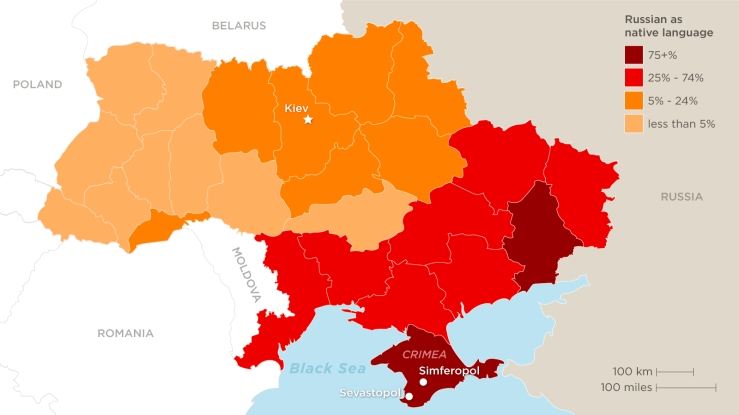
In accordance with the basic principles of intersemiotic translation, this is what the map says in plain English:
- Russians constitute no restive minority but a commanding majority on more than a third of Ukraine’s land area, even half of it if you apply liberal arts math;
- There is a number of ethnic Ukrainians in Ukraine whose native language, the keystone of their identity, is Russian instead of Ukrainian;
- Annexing the Crimean Peninsula is about as much of a crime as having the Irish government invade downtown Belfast using five horses with clovers in their hair. Western diplomats would definitely implore the Olympic goddess of international law to shed a couple of hypocritical tears over it, but the whole thing wouldn’t exactly run counter to Irish conscience or the democratic will of those living in Northern Ireland.
The regions of Crimea and Donetsk (cabernet red) are as Russian as it gets these days, while Zaporizhya, Kherson, Luhansk, Kharkyv, Dnepropetrovsk, Mykolaiv and Odessa are also Russian-majority regions. These places have no business being in Ukraine even if we respect Ukrainian nationhood.
On top of all this great stuff, let’s not miss the fact that Ukraine is one crazy mess of a state. Hungary has its smuggler’s paradise at the border to Chop in Ukrainian Transcarpathia for a reason, and that reason isn’t the vast difference in moral standards between border guards in Northeast Hungary and Southern Hungary. The reason is that there is still a semblance of a serious authority chasing down economic crimes in Serbia, while there is no trace of such centralized luxury in Ukraine.
Some thoughts on economic crimes: even though an Atlantic vantage point doesn’t paint Eastern kleptocracies in a good light, there is one distinct advantage to a system built on a freeloading government. That advantage is that the number of those who prey on the common good is relatively limited. The everyday Belarusian, Russian, Kazakh, Turkmen, Uzbek, Tajik or Kyrgyz knows very well that their government is pretty busy stealing (or rather, robbing, mugging and marauding), but at the same time, he has complete peace of mind that everyone else doesn’t steal, because a centralized, authoritarian government of robbers is always quick to wipe its competitors off the face of the Earth. They rally one single common base under the same party and the same flag, and when they steal, it’s only them stealing. In exchange for the fruits of everyone else’s work, they are also willing to govern.
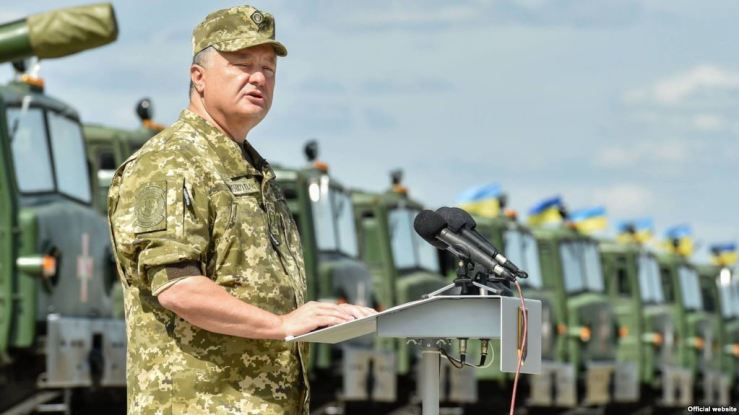
This looks like a pretty ideal state of affairs from a Ukrainian vantage point. Our neighbors happen to have multiple parties with all of them stealing. Petro Poroshenko’s Solidarity steals, the Party of Regions led by Viktor Janukovich (who wasn’t exactly fluent in Ukrainian by the time he was elected president) stole, Viktor Jushchenko’s Our Ukraine stole, Leonid Kuchma could have made an awesome caudillo under more fortunate historical circumstances, and Leonid Kravchuk used to be a Communist party leader, which means that he didn’t have his first encounter with corruption watching BBC’s evening news. The icing on the cake is that the bulimic government of freeloaders can’t even govern as freely as my favorite Central Asian dictators do. For starters, there is an actual parliament in Ukraine, where the process of majority-building is just as arduous as anywhere in the Western world. Also, contrary to post-Communist customs, the government doesn’t have oligarchs in Ukraine – the five most powerful oligarchs and all the other regional princes (whose combined fortune exceeds half of the Ukrainian GDP after they magically happened to acquire all formerly state-owned industry during the immediate post-Soviet period) have a government there. There is no real freedom to govern, no love lost and no fairy tales – there is only a miserably constrained puppet government, corruption wherever eyes can see, public services in a state of utter disrepair and constant ethnic tension. If a country is dirt poor and completely unable to govern itself, they are always happy to play sassy with all the other nations who managed to pull their country out from under the ruins of the Soviet Union. The Hungarian card, the Russian card and every other card is ready to be played in any politically unfortunate situation. It’s a catch-em-all. Pointless ethnic squabbling incited for lack of better things to do never seems to go away.
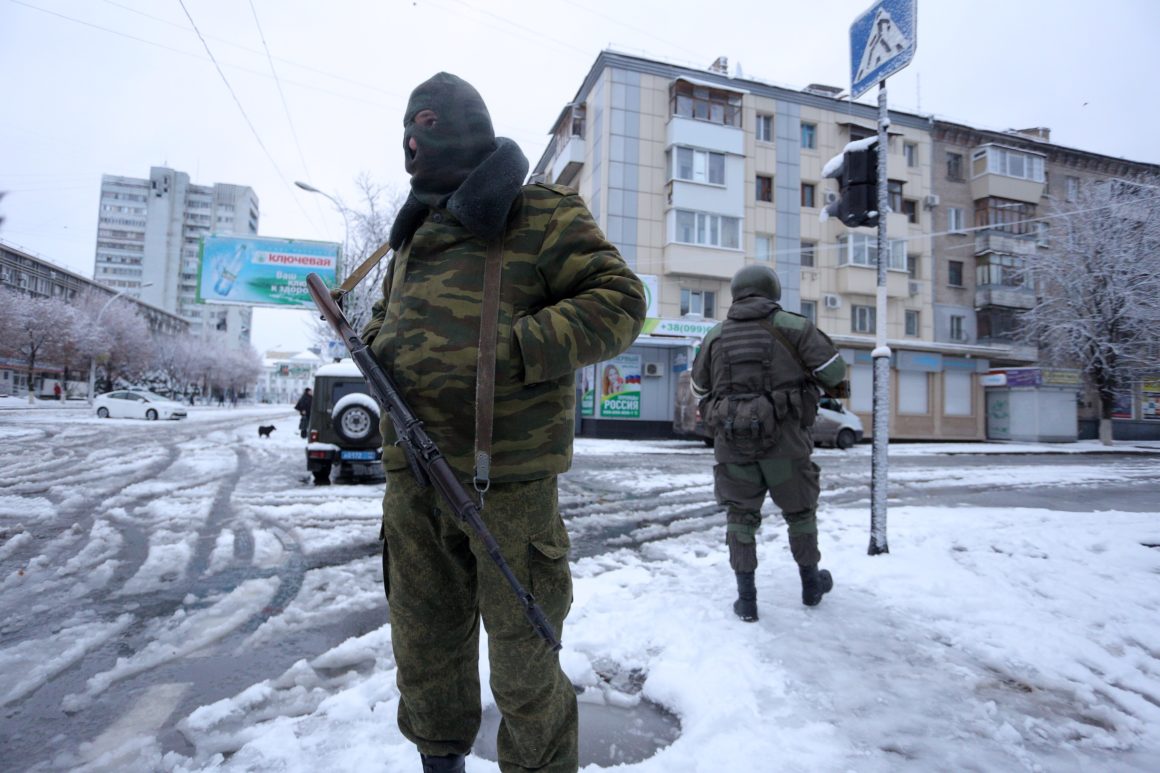
To be frank, Ukraine is suffering from all of the woes of post-Communist statehood (uncompetitive industry, low wages, worthless currency, international scorn, rabid corruption, debt trap) without seeing any of its advantages (peace, stability, a generous welfare state that provides acceptable healthcare, education and subventions for food and fuel, a functioning infrastructure, a period of cultural blossoming) unfold on the sullen, dripping black Ukrainian chernozem.
Ukraine is a danger to itself and others, it’s wading knee deep in desperate poverty, and it’s extremely unfit to govern itself. Ask any fair-minded Ukrainian-born Russian in this situation whether they’d be interested in belonging to a tidy, orderly, stable and economically viable regional hegemon with a comparable level of corruption and a tiny bit less democracy where Russians aren’t an oppressed minority. Also mention that they wouldn’t even have to move away from the land where they were born. Would any sane Russian refuse this offer? Would they say a big and patriotic Ukrainian “no”, just because Ukraine’s glory and will are not yet dead? No way. They’d enthusiastically say yes. Good for them. It’s the right thing for them to do from every possible perspective – financial, political, moral, whether they keep the future of their children in mind, the retirement benefits of their mothers or their own physical and mental wellbeing.
And if we asked any fair-minded country whether it’d be interested in recovering a chunk of land that has belonged to them for the better part of the last two millennia with minimal military effort and completely in concert with the will of the people (who are fellow nationals) living there, what would they say? Would they say no? If the geopolitical order of things offered Moldavia to Bucharest, Gibraltar to Madrid, Northern Ireland to Dublin, California to Mexico or Transylvania to Budapest on a silver platter, would any of these countries hit themselves on the head with a book on international law and chase the patriotic pipe dream down the rabbit hole? What a stupid decision would that be. Only a nation that is unfit for live, undeserving of their homeland and generally miserable would act that way.
One can’t take refuge behind the thin veneers of diplomatic maneuvering and swim against every current of strategic reality for too long. Crimea and the Donetsk Basin (or Donbass, if you will) are Russian lands inhabited by the Russian people, and Russia is powerful enough from every possible aspect to annex and govern them. Everyone currently living there would get a chance to live a better life as part of Russia than they did in Ukraine. There are no logical arguments against Russia exerting control over them. (There are legal ones, but international law has a spectacular tendency to cave to power structures.)
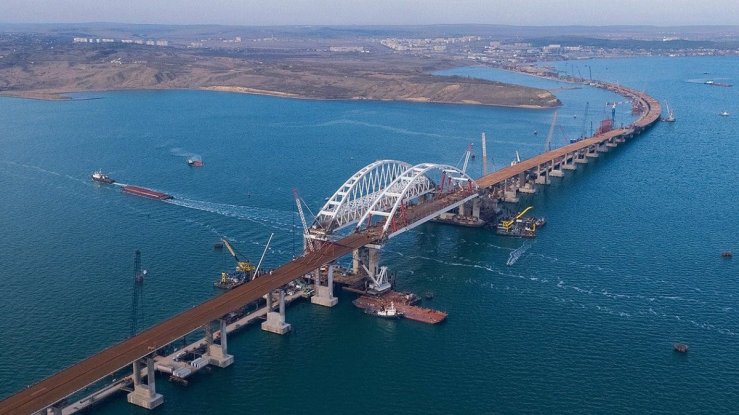
Mostly everything going on in terms of diplomacy around Ukraine is ridiculous. It isn’t ridiculous because it’s slow – diplomacy tends to be slow. It isn’t ridiculous because it limits itself to legal arguments. It’s not even the ludicrously self-destructive and ineffective sanctions that make it ridiculous. It’s ridiculous because the West doesn’t have a vision for Ukraine. It doesn’t know clearly where (or whether) it wants to see Ukraine standing in fifteen years’ time. If European foreign policy continues to conduct its business as usual, Ukraine won’t find a better role for itself than the restive, desperate no man’s land, the buffer zone that it currently is. No one will keep Russia from chipping away on its territory with great international uproar and zero practical consequences. We can decide whether or not we’d like to see more Russian warships blocking entry to Ukrainian ports, we can opt for continued propaganda against minorities, for the draft of more Hungarian youth into a pointless war against the steam roller, and give some corrupt governments a chance to cut civilian families off the heat and water grid. We can opt for a restive Ukraine, one that phantasizes about neutrality in the immediate vicinity of the world’s second most powerful military power. Yet if we Europeans still harbor some human goodwill and consider the suffering Ukrainian people worthy of a peaceful and prosperous country, there aren’t really more than three strategic scenarios we can choose from.
- WESTERN INTEGRATION. Ukraine should man up and apply for EU membership. Not in 2030, as President Juncker of the European Commission and Ukrainian electoral criminal Poroshenko promised – rather in 2019. The EU should also man up and conduct a deep cleaning of Ukrainian politics according to European standards in terms of separation of powers, corruption and economic structure. A reformed, hopeful and effective Ukrainian state should then make peace with its minorities, stem the tide of Russian nationalist propaganda and win the support of the Russian minority. After the Russians of the Donbass voted to remain in Ukraine at a free and fair referendum, the three military powers of Europe (Great Britain, France, Germany) should unilaterally guarantee the Eastern border of Ukraine. Even though this is an act of escalation which would definitely take the geopolitical chicken game up a level, Article 5 of the NATO Treaty would keep Russia from responding in kind. Ukraine should officially cede Crimea to Russia in return – it’s lost anyway, there is no reason to further irritate the Russian bear. Even this solution would take the dilomatic tolerance of Russia to the very extreme, and a NATO membership of Ukraine (which would be illegal right now as the country is in a state of war) would definitely result in war between the NATO and Russia. Judging by the current state of European politics, this scenario doesn’t seem to be likely to occur.
- RUSSIAN INTEGRATION. Ukraine and Russia should work out a cooperation agreement modeled on that of Belarus and Russia. At the very basic level, Ukraine should re-join the Community of Independent States and join the Russian-led Eurasian Economic Union, that is to say, declare economic and strategic loyalty to Russia and stop looking for Western allies. This is the only scenario where there is any chance for Ukraine to recover Crimea, and also the best solution for Ukraine economically speaking. The European Commission doesn’t have the political capital to mobilize significant development funds for Ukraine right now, while the fuel discounts Russia uses to keep Belarus close would mean a significant injection of capital to Ukraine within a very short time. This would be very hard to swallow for Ukraine – for the people and the government alike. Even though the resignation of Poroshenko is a baseline requirement, this is still the most likely of my three ideal new status quos.
- SPHERES OF INTEREST. Ukraine should be divided between a new Ukrainian and Russian state along ethnic lines. The latter should hold a referendum on whether to be independent or join the Russian Federation. The former should apply for membership in both the EU and NATO. The EU should sketch a policy of economic development for the Ukrainian part and rebuild its political system according to European standards. Any Ukrainian state would be unlikely to cede the relatively rich Eastern industrial regions (Donetsk, Luhansk, Dnepropetrovsk, Odessa) to anyone, or navigate itself into a disastrous economic situtation if it does.
If Western and Russian diplomacy doesn’t manage to draft and negotiate an agreement along these lines, there will be no peace in Ukraine for decades to come. Sanctions, accords and loud appeals by militant journalists of prestigious foreign policy desks won’t change that. Geopolitics is a really stubborn thing to deal with. One can obfuscate a so many things in politics, but even though speech flies away, power – and only power – remains.

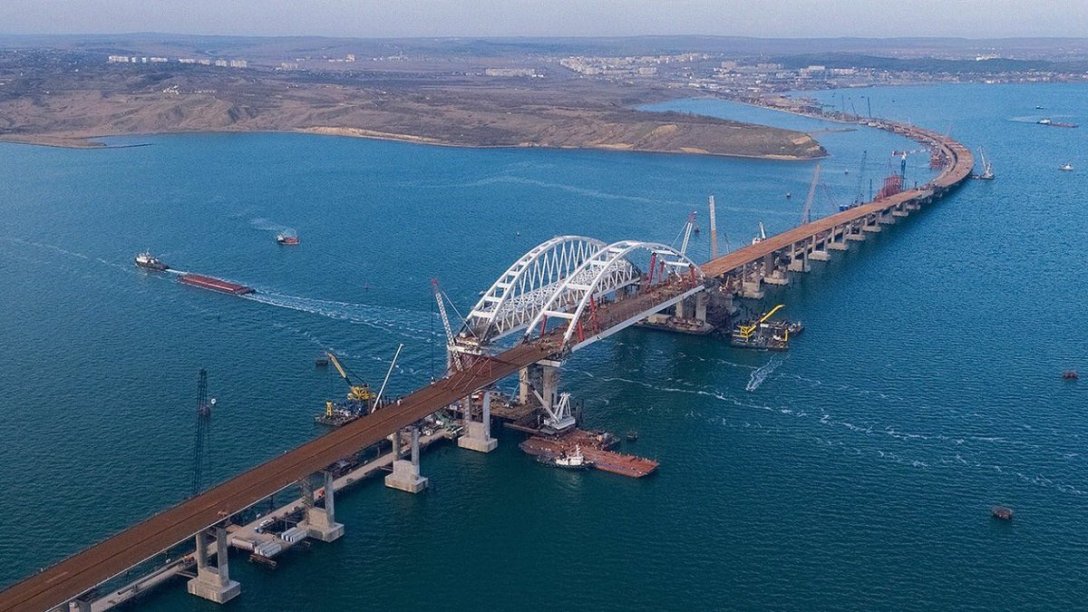
[…] here to access the English translation of this […]
KedvelésKedvelés